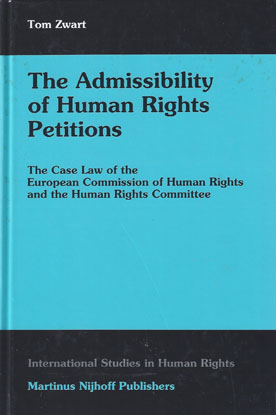
Both global and regional human rights treaties have established international institutions offering recourse if a State party fails to comply with its obligations under the treaty.
Many of these institutions have jurisdiction to consider complaints brought by individuals claiming that a State party has violated the rights enumerated in the treaty. However, these same institutions appear no longer merely to confine themselves to considering individual petitions. Due to the growing number of complaints, they have become increasingly preoccupied with managing their workload.
This volume focuses attention on two international institutions - one regional (the European Commission on Human Rights) and one global (the Human Rights Committee). It examines the admissibility conditions of both the Commission and the Court by means of their case law and discusses possible changes which might reduce this case load.
Chapter 2 discusses the procedural aspects of both systems, in particular, the division of labour and the various stages of the proceedings. Chapters 3-9 explore the case law of both organs concerning admissibility conditions, and such topics as competence ""ratione personae"" (including standing, the victim requirement and State responsibility), competence ""ratione temporis"", competence ""ratione materiae"", inadmissibility ""pendente lite"" and the exhaustion of local remedies.